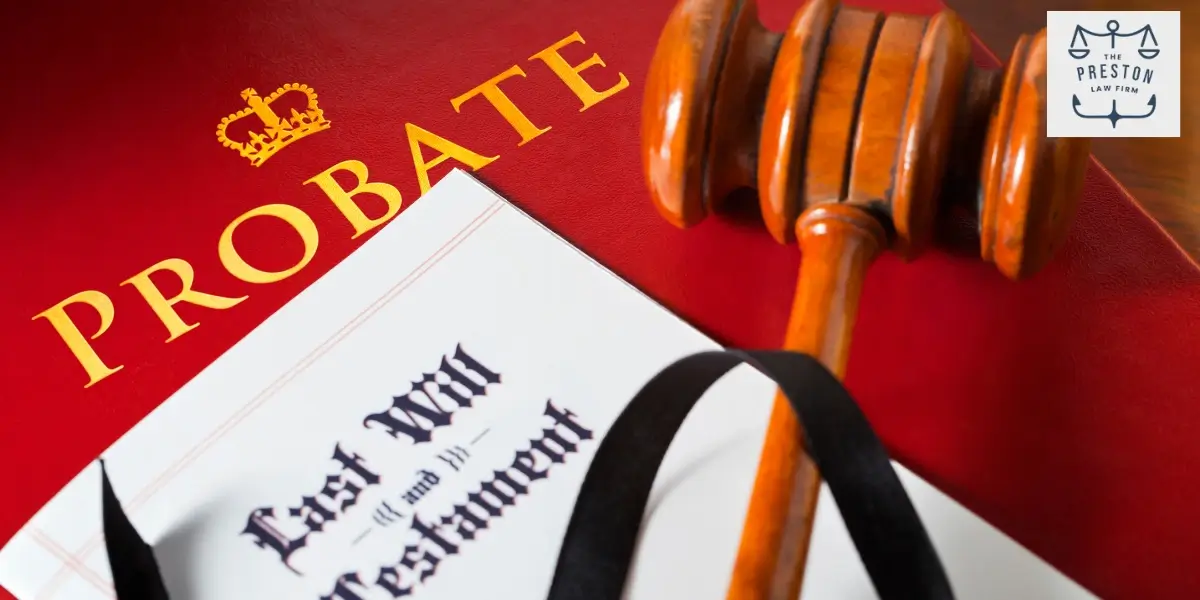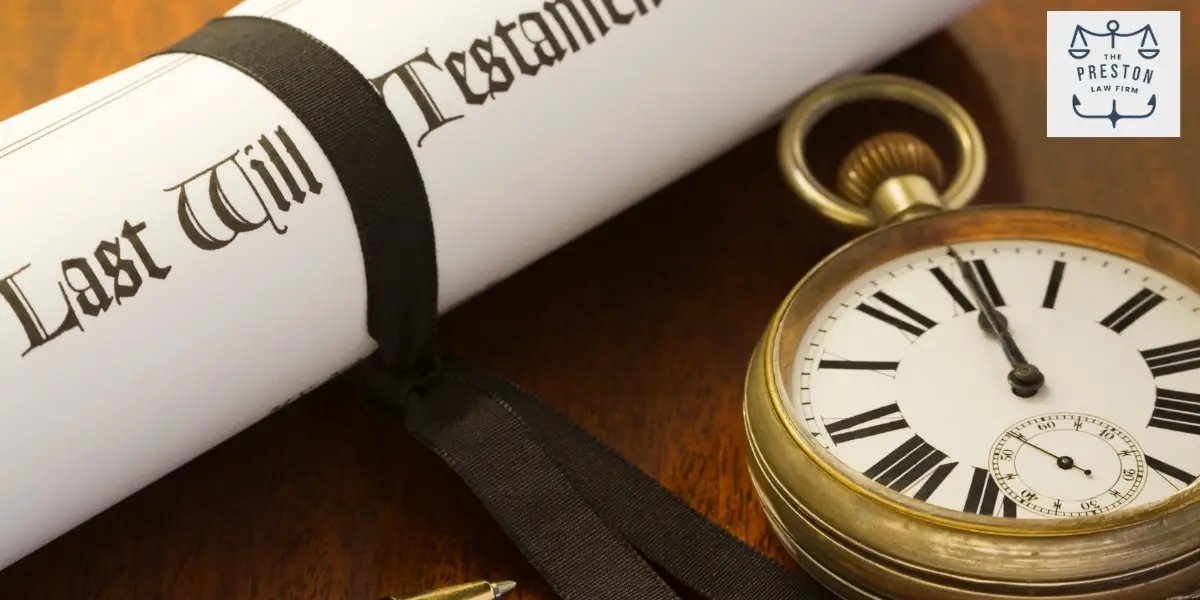How much a will should cost will rely on how complex your estate is, how many beneficiaries you want to leave your estate to, and whether you work with an attorney. Working with an attorney can increase costs, but it makes your will more likely to be legally valid. If you have many complex assets, many unique beneficiaries, and require financial professionals to inventory your estate, this will make it more costly to create a will.
Edgewater Wills Lawyer
Edgewater Wills Attorney
A last will and testament is one of the most essential documents in any estate plan, protecting your family’s future and securing your assets. If you own any assets or have any intentions for how you want those assets passed on, you could benefit from a will. An experienced Edgewater wills lawyer can help you draft a legally valid will and give you more certainty in how your affairs will be managed when you are gone.
A basic estate plan may only include a will, helping individuals direct the distribution of their estate in the probate process, putting someone they trust in charge of the estate, and naming their children’s caretaker. Even the more comprehensive estate plans typically have a will to establish certain basic protections for your children and to ensure anything that does go through probate is handled appropriately. Having an Edgewater estate planning lawyer on your side can help streamline the entire process.

Experienced Wills Lawyer in Edgewater
The Preston Law Firm has helped countless families and individuals protect their assets and plan for the future through comprehensive estate planning. For more than 35 years, our firm has worked in estate planning and probate law, giving us a complete understanding of the process of creating and administering estate plans.
We understand that it isn’t easy to create a will or estate plan. Not only is it legally challenging, but it can be personally difficult to address issues that will occur when you are incapacitated or have passed. Our attorneys can provide the legal support and compassionate care you need. We help you address the property in your estate and how you want your loved ones to inherit it, as well as help you create a will or more comprehensive estate plan that meets those goals.
What is a Last Will and Testament?
Known for its peaceful small-town feel and growing economic development, Edgewater is home to a strong manufacturing sector and multiple business parks, including the ParkTowne Industrial Center. As of 2023, the median age in Edgewater was 54.7 years old, making it critical for residents to start estate planning. A will is a legal document which can list the following:
- An inventory of the assets in your estate, including real estate, bank accounts, vehicles, investments, and other personal property. For Edgewater homeowners, where the average home value is $297,889, real estate is often the highest value asset one has. Being in control of what happens to your home after you pass is your right.
- The individuals or entities you wish to benefit from assets in your estate
- How you want debts to be paid from your estate
- The executor you choose to manage and administer your estate
- A guardian for your minor children. 15% of Edgewater residents were under 18 as of 2023. Having a solid, legally valid plan in place for your children couldn’t be more important.
A will outlines most of your wishes for your estate, guiding the probate administration process. This document can be updated at any point in your life as long as you have the testamentary capacity necessary to alter it and the changes meet the legal requirements of creating or altering a will.
A will is beneficial because it is one of the least expensive forms of estate planning. While it does not avoid probate court like other estate planning tools, it can guide the process of probate and make it move more quickly when the will is created correctly. It is one of the simplest tools for ensuring your wishes for your estate are known.


The Preston Law Firm
Experience the Difference. Choose an Estate Planning Law
Firm Dedicated to You and Your Family.
What Happens If You Die Without a Will?
Dying without a will is known as “intestate.” When this happens, your assets pass through probate court, and the court determines who will administer your estate. Once they have appointed a personal representative, that individual will be responsible for the probate process, including distributing your estate based on the state’s laws.
The state’s intestate inheritance laws determine who will inherit your estate, beginning with your surviving spouse and any surviving descendants. The goal of inheritance laws is to provide your estate to anyone related to you. If you have no surviving spouse or descendants, then your estate may pass to your parents, your siblings, your grandparents, and other relatives in descending order. If you have no surviving relatives under the law, your estate becomes the state’s property.
Having a will prevents your estate from being distributed according to the state’s intestate inheritance laws. Even if the state’s intestate laws are how you would wish your estate to be distributed, those laws can change. Instead, a will gives you more control over the entire process, including who inherits your estate and when, and you have control over who oversees the estate administration process.
Additionally, without a will, you cannot name the guardian for your minor children. The court will likely give custody to your surviving co-parent or spouse. However, if they are not able to provide care, then the court will decide who cares for your children. This may not be who you want to care for them. Creating a will allows you to state your wishes, and the court can determine if this is in the child’s interests. It’s vital to hire a wills lawyer to help make sure your will is legally valid before you pass.
What Is Required to Have a Valid Will?
In order for your last will and testament to be legally valid and enforceable in probate, the following must be true:
- It is signed by you, the testator, or signed with your name by someone in your presence at your direction.
- It is signed by two attesting witnesses in the presence of the testator and each other.
There may be other options for a legally valid will, depending on the circumstances, and an attorney can help you review those options. Any updates and modifications made to your will must be validated in the same manner.
Does a Will Go Through Probate Court?
A will does not avoid probate like other estate planning tools. There are certain circumstances where an estate qualifies for summary administration, which is a shortened form of probate for low-valued estates. Otherwise, all estates go through formal probate if they only have a will. This is an entirely public process.
A common method to avoid probate in Florida is by creating a living trust. This allows you to transfer almost any type of property, including real estate, bank accounts, and vehicles, into a trust. You must prepare a trust document naming a successor trustee and then legally transfer ownership of your assets to yourself as the trustee. After your death, the successor trustee can transfer the property to your beneficiaries without going through probate court.
A way to avoid real estate probate is by creating a “Lady Bird deed”, also known as an enhanced life estate deed. It is a way to transfer your home directly to a loved one when you die, without requiring them to go through the probate process.
It also allows you to have full control of your property while you’re alive. You can still live in it, sell it, or change your mind and cancel the deed at any time. This can be especially beneficial to those on Medicaid. While your home may not count against you when applying for Medicaid, the state can try to take its value back after you die. This is called “estate recovery.”
If you gave away property during the five years before applying for Medicaid, such as transferring real estate into certain trusts, it might make you ineligible for aid. However, a Lady Bird deed doesn’t count as a gift, meaning you still own the home, and it doesn’t disqualify you.
Florida also allows you to add payable on death designations to bank accounts, such as savings accounts and certificates of deposit. This lets you retain full control of the funds during your lifetime, but after your death, the named beneficiary can claim the money directly from the bank without going to probate court. Florida has a few different options to help lessen or avoid probate altogether, making it vital to seek legal counsel when creating your estate plan.
Understanding the Probate Process in Edgewater, FL
Probate is how the state inventories your estate, pays your debts and taxes, and distributes your estate. It is a potentially long and frustrating process for your loved ones.
Creating a will allows you to specify how your debts will be paid and how your estate will be distributed, streamlining the probate process. By clearly outlining your wishes, you can prevent disputes among loved ones and ensure the process is handled efficiently.
Disputes between family members can lengthen the probate process. It is more likely that there will be contests to your will if:
- Your will is unclear or invalid
- There are doubts that you had a testamentary capacity
- There are concerns you were the victim of fraud or undue influence
When your will is legally valid, and there is no question about your competence, this makes it less likely that interested parties may contest your will.
There are options in comprehensive estate planning to avoid probate entirely, including the creation of trusts. Your estate planning attorney in Edgewater, FL can review the benefits and drawbacks of these tools for your unique situation.
Hire a Wills Lawyer
The Preston Law Firm has served Volusia County families since 1986. Our firm has a niche focus on helping clients prepare their wills and trusts, and guiding them through probate, serving over 3,000 Florida residents to date.
We know intimately how family law can bring up complex feelings and are dedicated to helping our clients through some of the toughest moments in their lives. Because of how unique every family situation is, our attorneys are committed to respecting clients’ wishes and making sure their needs come first. Clients can expect responsiveness, professionalism, and a clear understanding of their legal options.

FAQs:
Finding the Right Attorney to Create Your Will
The benefits of a will are only possible if it is done properly and is worded clearly. At The Preston Law Firm, we can help you draft an enforceable will that addresses your wishes for your estate and your loved ones. Contact our team today and learn how we can help with your estate plan.
THE PRESTON LAW FIRM
If you find yourself in this or another similar situation, the Preston Law Firm has the knowledge and experience to assist you. Timing is critical, CLICK HERE to contact us today.


